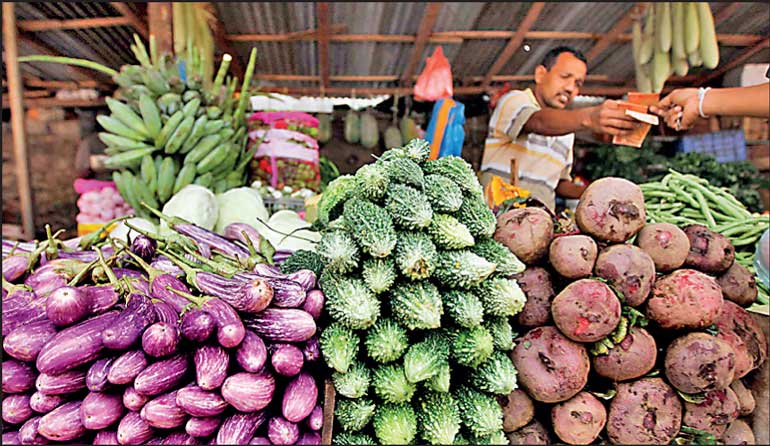Monday Feb 16, 2026
Monday Feb 16, 2026
Wednesday, 22 December 2021 00:00 - - {{hitsCtrl.values.hits}}

YOY inflation of the food group rose to 17% in November from 11.7% in October
The overall rate of inflation, as measured by the National Consumer Price Index (NCPI) in November, moved to the double-digit level for the first time in over a decade.
The Department of Census and Statics (DCS) said November inflation at 11.1%, up from 8.3% in October, was mainly due to the higher price levels prevailing in both food and non-food categories. The year-on-year (YOY) inflation of the food group rose to 16.9% in November from 11.7% in October and the non-food group rose by 6.2% from 5.4%.
With the November inflation figure, the country has effectively ended the impressive track record of single digit inflation by multiple governments for the past 13 years. Wealth Trust Securities said the NCPI increase in November was an all-time high of 11.1% on the point-to-point basis.
The hike in November came before yesterday’s upward fuel price revision, the impact of which will be felt in the coming weeks and months. The Central Bank is said to have maintained that fuel hike impact on inflation will be minimal.
However, several sectors including bakeries, container transporters (See box stories) have already announced price revisions whilst others said it is imminent. Separately, three-wheel drivers have announced the cost of the first kilometre will be increased to Rs. 80 from Rs. 50 previously.
CBSL, via its short-term roadmap unveiled in October, said maintaining inflation within the target band of 4-6% will be a priority.
“The record of over 150 consecutive months of single-digit inflation will be maintained with appropriate policy measures,” CBSL Governor Nivard Cabraal said in October.
The spike in November comes despite CBSL›s recent monetary tightening measures via which it attempted to pre-empt any build-up of inflationary pressures in the medium-term. CBSL also said targeted measures will be recommended to the Government to arrest food inflation, which has been a concern globally. CBSL roadmap however was for six months whilst a more long-term and concrete roadmap is expected in the first week of January.
DCS said, on a YOY basis, the contribution of food commodities to inflation was 7.83%. Contribution of non-food items was 3.32%. The latter was mainly due to price increases in groups of items – restaurant and hotels, housing, water, electricity, gas and other fuels, transport, health, furnishing, household equipment, clothing, and footwear. The moving average inflation in November was 6.2%, up from 5.7% in October.
In its last monetary policy review for 2021, the CBSL, in late November, said inflation accelerated recently mainly due to supply side disturbances and the surge in commodity prices internationally. It said supply side disruptions, removal of domestic price controls and upward adjustments to several administratively determined prices to reflect the rising global energy and other commodity prices along with the gradual firming of aggregate demand conditions, have pushed inflation above the targeted levels recently.
“A further acceleration of headline inflation is possible in the immediate future, although such movements are expected to be transitory. The monetary policy measures already taken by the Central Bank will help curbing excessive demand pressures and prevent the build-up of adverse inflation expectations,” CBSL added.
